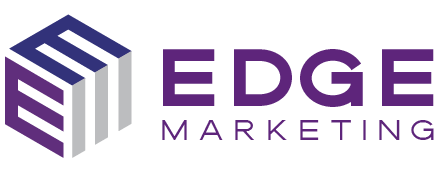Putting a face (and a voice) to your brand
Tips for preparing a spokesperson
by Jennifer Marsnik
A company’s brand is among its most valuable assets. Just as we aim for consistent use of logos or taglines, maintaining control of messaging is an important component of brand management. To that end, it’s helpful to establish a spokesperson for media outreach, interviews and more.
Designating a spokesperson allows you to control a narrative and ensure that consistent and accurate messages are communicated to the media and the public. A well-prepared spokesperson can build trust and credibility, enhancing the company’s reputation as a reliable source of information. This allows your organization to take advantage of media interviews as opportunities to showcase the company’s expertise, highlight its achievements and promote its products or services. With the right spokesperson, you will maximize these opportunities and leverage media coverage to your advantage.
A skilled spokesperson can effectively convey the company’s key messages and address any concerns or misconceptions, helping to shape a positive image. In times of crisis or negative publicity, it is especially important to have a trustworthy source to respond promptly, provide accurate information and reassure stakeholders to mitigate the impact on the company’s reputation. Without a designated spokesperson, different employees may offer conflicting information, leading to confusion that may further damage the company’s brand.
It’s important to identify the right individual to serve as a spokesperson. CEOs often assume these duties, but they are not always naturally the best individual to fill the spokesperson role. The right person is knowledgeable, of course. But they must also possess strong communication skills and the ability to represent the company well in a variety of situations or circumstances.
Once the right spokesperson is identified, prepare this individual for the role. A few best practices include:
- Craft Key Messages: Work with the spokesperson to develop key messages that align with the company’s objectives and values. These messages should be clear, concise and memorable.
- Get Media Training: Provide media training to help the spokesperson effectively communicate key messages, handle difficult questions and maintain composure during interviews.
- Know the Audience: Tailor messaging to suit the audience of the media outlet or journalist conducting the interview. Understanding the audience’s interests and concerns will help the spokesperson connect more effectively.
- Stay Informed: Ensure the spokesperson stays informed about industry trends, current events and any developments related to the company. This will help in addressing questions and providing relevant information during interviews.
- Practice: Conduct mock interviews to allow the spokesperson to practice delivering key messages and responding to potential questions. Provide feedback and guidance on improving delivery.
- Be Authentic: Encourage the spokesperson to be authentic and genuine during interviews. Audiences respond positively to individuals who come across as sincere and transparent.
- Pay Attention to Dress and Demeanor: Because appearances matter, the spokesperson should dress appropriately for the interview and maintain a professional yet approachable attitude.
- Stay Calm and Confident: Remind the spokesperson to stay calm and confident, even in challenging situations. This will help in maintaining control of the interview and project a positive image of the company.
- Follow Up: After the interview, debrief with the spokesperson to discuss what went well and areas for improvement. Use this feedback to continuously refine media skills.
Identifying and preparing a company spokesperson for media outreach and interviews is important for effective communication, maintaining stakeholder trust and confidence and overall company brand management. Follow these best practices to improve results.
About the Author
With Edge Marketing since 2007, Jennifer Marsnik specializes in helping clients develop and implement strategic plans that support their overall business goals.


Leave a Reply
Want to join the discussion?Feel free to contribute!